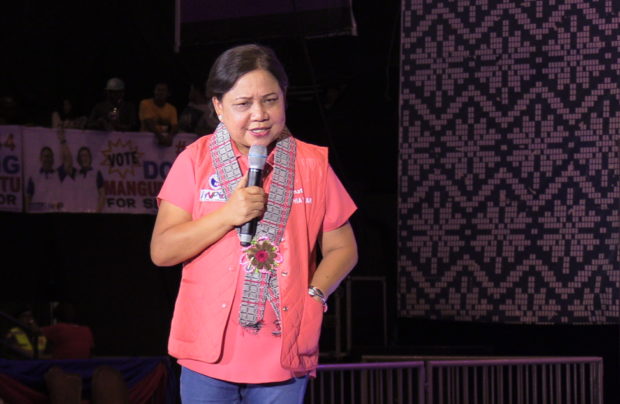A lawmaker is set to file a bill seeking to create a competitiveness enhancement fund for livestock to ensure that tariff revenues from imported meat will be exclusively used for the development of the local industry.
Sen. Cynthia Villar, head of the Senate committee on agriculture and food, said in a hearing on Tuesday that the bill was in response to hog raiser groups appealing to the government for additional interventions amid the persistence of African swine fever.
The proposal is similar to the rice competitiveness enhancement fund wherein import duties are used to bankroll programs specific to the needs of the industry.
While Villar has yet to draft the bill, she said one of the priorities would be the construction of border control facilities at the country’s major ports to avoid another repeat of the ASF crisis.
The country’s first case of ASF was caused by a shipment of smuggled meat from China in 2019. Since then, a total of 7,845 cases have been recorded.
The funding may also be used to institutionalize insurance coverage, hog repopulation, the development of breeder farms and the provision of scholarships and credit, Villar added.
Tariff revenues from imported meat are funneled into the Agricultural Competitiveness Enhancement Fund, which was created in 1996 to provide a safety net for farmers and fishers affected by trade liberalization policies of the government.
The need to create a separate fund for livestock may also be Villar’s way of convincing the Department of Agriculture (DA) to forego its proposals to cut tariff rates on pork and increase the import volume slapped with lower duties.
‘A transparent process’
During the hearing on Tuesday, Villar said lawmakers needed “to convince DA that we don’t need these [reforms]” as the agency’s recommendations could heavily influence the Office of the President’s decisions on the matter.
Total pork imports last year yielded a total of P3.88 billion in taxes at 30 percent and 40 percent tariff for in-quota and out-quota rates, respectively. The proposal is to reduce tariffs to as low as 5 percent.
The DA also proposed to expand the minimum access volume to 404,210 metric tons (MT) from 54,000 MT. Imports under MAV are slapped with lower tariffs.
Jesus Cham, Meat Importers and Traders Association president, said both proposals would undergo “a transparent process where all sectors would be well-represented,” but lawmakers said they believed that incentivizing importers would hurt the local industry in the long run.
The DA did not say whether it was open to rescinding its proposals. Supply and demand data presented by government agencies are also yet to be harmonized.
